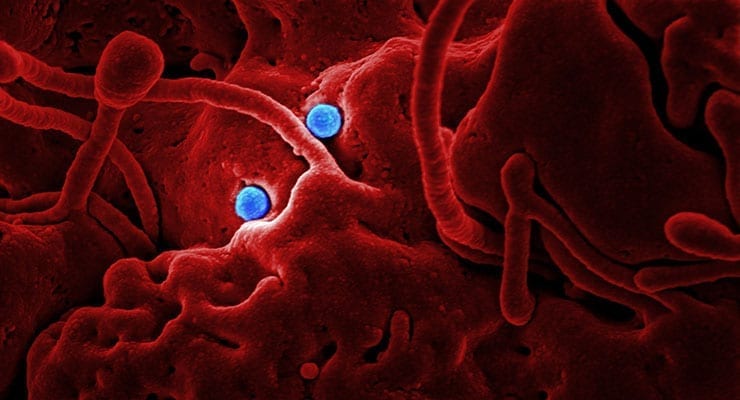Middle East respiratory syndrome coronavirus (MERS-CoV) or its immediate ancestor most likely originated in a yet-unidentified bat species, according to National Institutes of Health (NIH), Colorado State University (CSU) and University of Northern Colorado (UNC) researchers.
Evidence of several closely related coronaviruses have been found in many bat species in Africa, Asia, the Americas and Eurasia, suggesting potential for widespread distribution of MERS-CoV-related viruses.
A new study published in Scientific Reports suggests bats are the most likely ancestral MERS-CoV reservoir, but at some point the virus spilled over into dromedary camels, which have developed from an intermediate to a primary host reservoir for the virus. Scientists from NIH’s National Institute of Allergy and Infectious Diseases (NIAID) and CSU performed the study.
In 2012 MERS-CoV emerged in people in the Middle East and has since been found in six Arabian Peninsula countries. Cases spread by people traveling through Middle Eastern countries have been found in Europe, Asia, Africa and North America. As of Feb. 9, the World Health Organization had been notified of 1,638 MERS-CoV cases globally, including 587 deaths.
Shortly after MERS-CoV emerged scientists began suspecting that bats and/or dromedary camels played a transmission role, but little research since then has involved bats. In the NIAID-CSU study, scientists inoculated 10 Jamaican fruit bats with MERS-CoV. Each became infected, and some shed virus from the throat and rectum, but none showed clinical signs of disease. The study importantly shows the ability of MERS-CoV to replicate in bats without causing disease.
The research group from NIAID’s Rocky Mountain Laboratories is continuing to investigate how those viruses replicate in bats and move directly or via other species into people. Understanding those mechanisms could lead to the development of intervention strategies to stop the introduction of these viruses in the human population.


